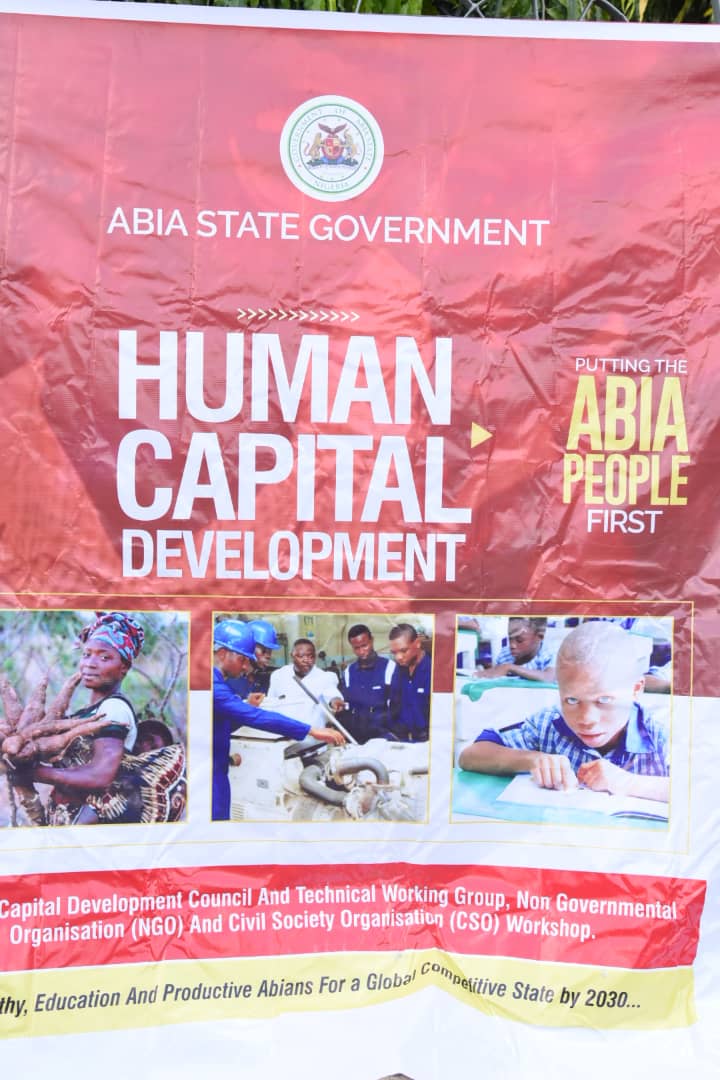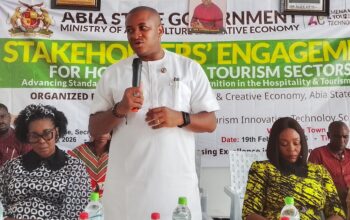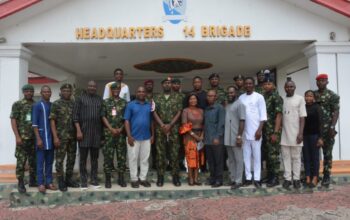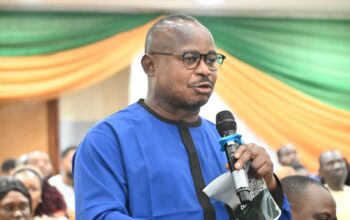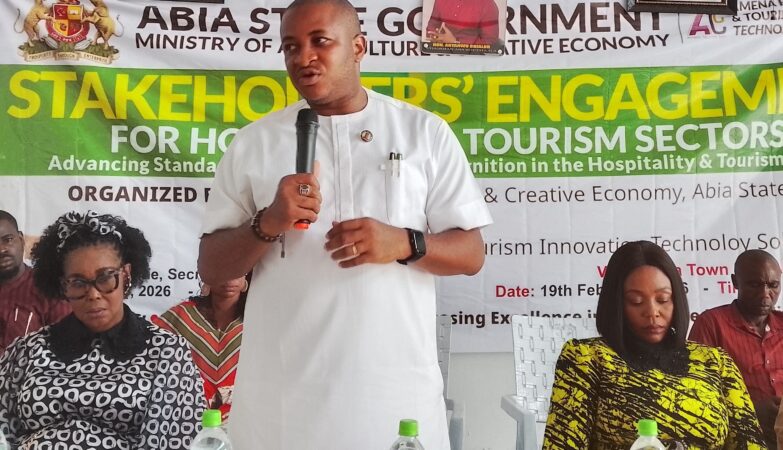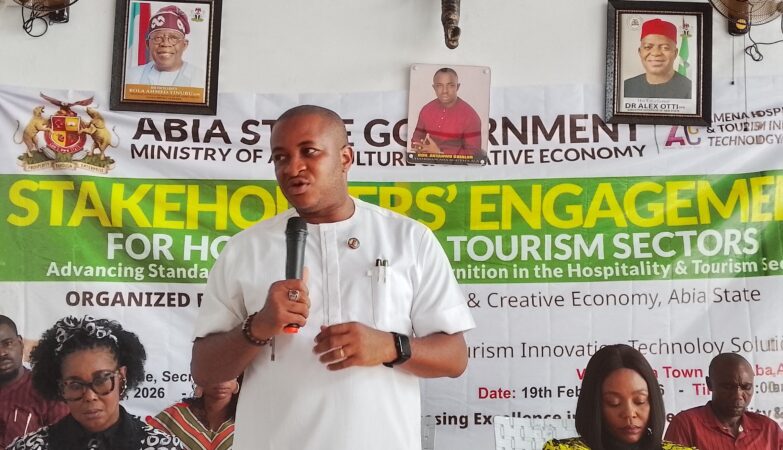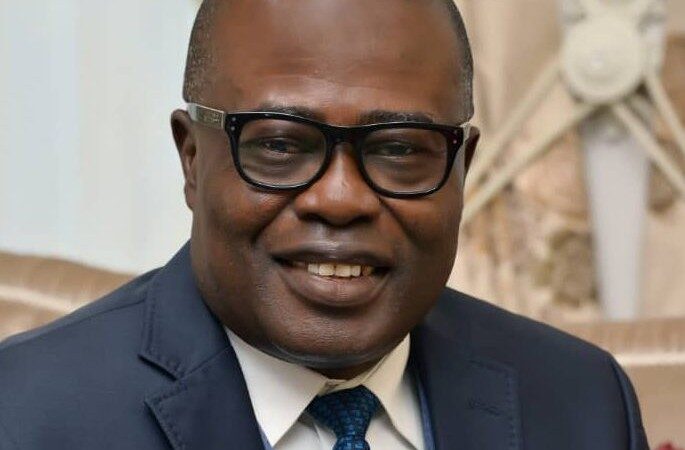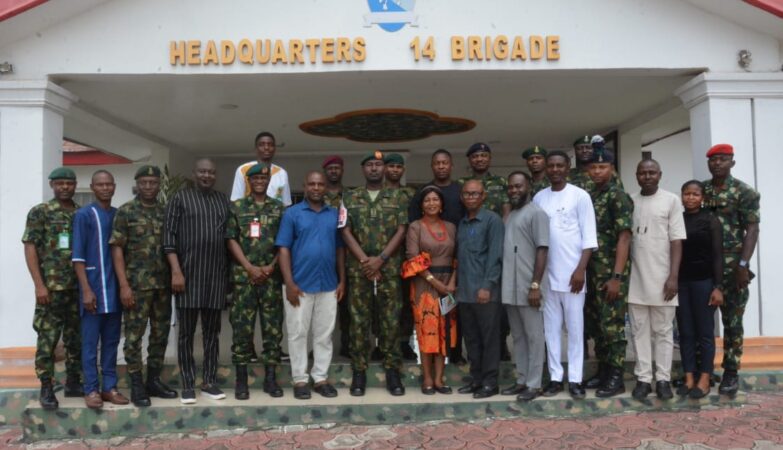The Chairman of Abia State Civil Service Commission, Pastor Eno Jerry-Eze Ph.D has called for media collaboration to achieve the goals of Human Capital Development, HCD in Abia State.
Pastor Eno who is the focal person of the Human Capital Development in Abia State made the call while declaring open a two day capacity building training for media workers holding at Aguiyi Ironsi Conference Centre, Umuahia.
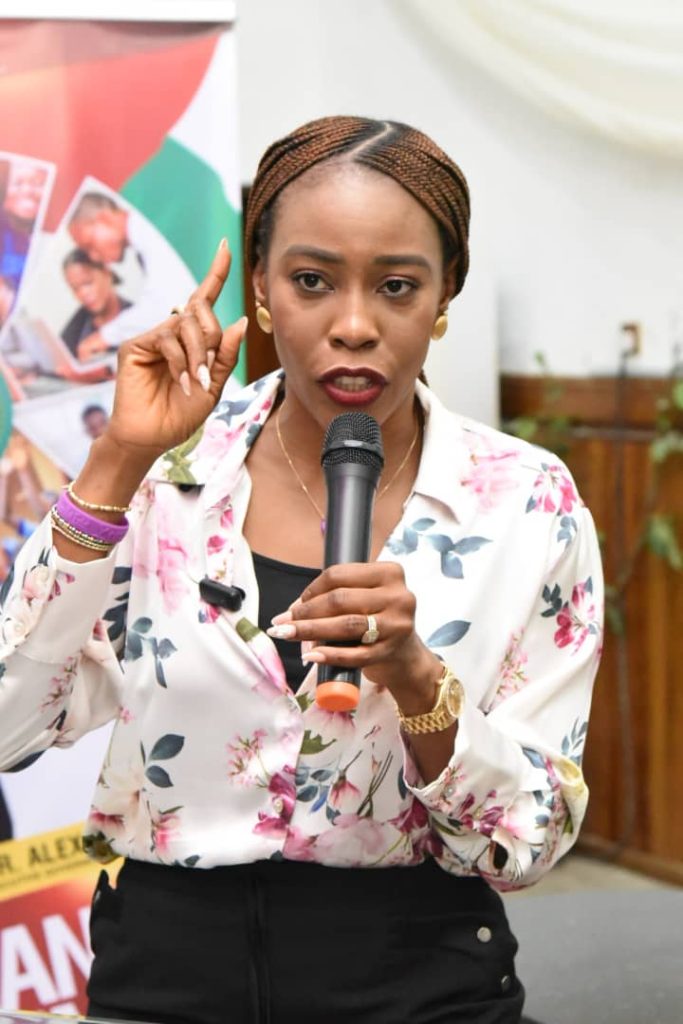
The HCD focal person in Abia State said the Vision is to restore the glory of Abia State and make her truly
the number one State in Nigeria, as really God’s own State.
The aim of the training is to enable the media to hold the government accountable.
According to her, the training was organized for information sharing, educating the public on human capital development. She added that the training was put together for accountability, ensuring government and stakeholders meet human capital development commitments.
Another reason was for advocacy, promoting policy changes for human capital development and to do community mobilization, inspiring public support for human capital development.
Pastor Eno further disclosed that the media training will help the media workers develop impactful human capital development stories.
She stated that in 2018, the National Economic Council initiated the
National HCD programme to address poverty and sustainable economic growth.
Pastor Eno Jerry-Eze revealed that HCD programme 1.0 is to set clear policy targets and
multi-sectoral plans for investment in Human Capital and expanding stakeholder support.
According to her, HCD 2.0 will focus on implementation and overall governance and funding structure to ensure programme
sustainability.
“It is linked to the UN Development Goals 2030”.
Pastor Eno said the focus of Abia State government is developing the skills, knowledge and abilities of individuals to improve their productivity
and quality of life.
She said “in Abia, it is about investing in our most valuable resource the PEOPLE”.
“Globally, the thematic Areas are Education, Health and Nutrition, and Labour Force Participation”.
Presenting a paper, a media consultant from Abuja, Mr Bankole Ebisemiju stressed the need for media workers to be consistent with their content. Bankole stated that the media participation in HCD is for spreading authentic information, raising awareness and shaping attitudes towards skills, health and knowledge all of which are essential for economic development and social growth.
He advised journalists at the training to choose a particular sector in each work for proper identification of issues and make appropriate recommendations.
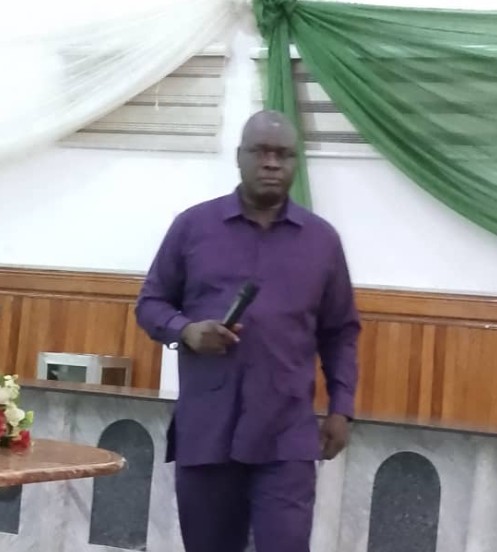
According to him, the report of any reporter should reflect the impact of the sector like health, education or agriculture etc.
He explained that any investment done by the Abia state government should yield results whether positive or negative and it is the job of the media to identify the impact of such investment.
He said, “the media can play a significant part in public advocacy work. Television, radio and press offer the opportunity to both reach decision-makers, and to influence wider public opinion.
The mainstream media is targeted at the general public, but can also have considerable influence over decision-makers and other opinion-makers who respond directly to articles in certain prestigious newspapers or certain programmes on the television and radio, particularly if they are aware of that media’s influence over public opinion. Organisations may use multiple media outlets to tell her story, anything from TV, newspapers, magazine and radio as well as the social media”.
Mr Bankole Ebisemiju also gave in details the roles of the media to achieve the vision of Human Capital Development in Abia State.
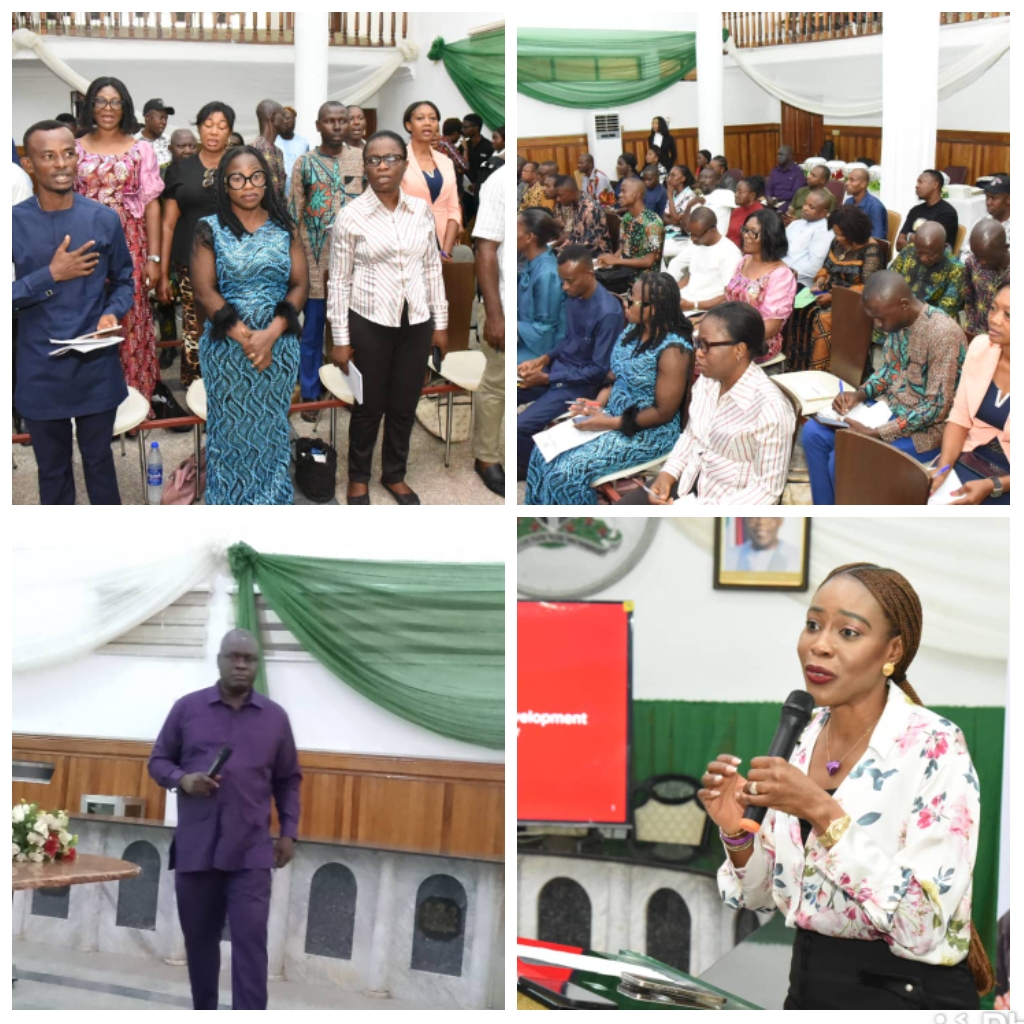
National Watch reports that the training which attracted media workers from several organizations, stakeholders featured questions and answers sessions.

